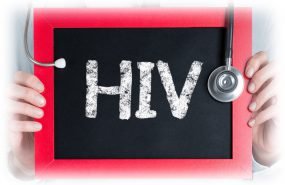Interregional workshop in preparation for transitioning towards domestic financing in TB, HIV and Malaria response
The overall objective was to provide a platform for countries and key partners to exchange good practices, lessons learned and common challenges in transitioning to domestic financing, and to define the next steps and technical assistance needs. As well as to:
• review and exchange the existing concepts and frameworks on financial and programmatic sustainability;
• identify, discuss and document regional and country-specific mechanisms, approaches and lessons learned on issues related to transition;
• share, discuss and analyse specific thematic areas and gaps that are hindering successful transitions and discuss solutions to address these;
• define the technical assistance needs of countries; and
• agree on follow-up action points for countries, WHO and other partners.
Participants included representatives from 23 countries that have transitioned, are transitioning or may soon transition from external financing; representatives from civil society and community organizations; representatives from donor and partner organizations; and staff of the Global Fund, WHO headquarters, and several WHO regional offices.
This document reviews the meeting content and summarizes outcomes and action points.
Please find the full version of the report by the following link.
Related News
Roundtable organized by Global Fund
On 26 May (Russian) and 27 May (English) at 10.00 am (Geneva time) Developing Country NGO delegation of the Global Fund Board and the Global Fund Secretariat are organizing the Roundtable “Responses to HIV and TB in times of COVID-19 – strengthening engagement with civil society and communities in Eastern Europe and Central Asia (EECA)” […] Read moreGlobal Fund funding opportunity – COVID-19 Response Mechanism
The COVID-19 Response Mechanism (C19RM), approved in April 2020, authorizes US$500 million in funding in addition to grant flexibilities. C19RM can be used across the three diseases and the health system, even if a country only has a single Global Fund grant for one component. The CCM will assess the most urgent needs and direct […] Read moreCOVID-19 lessons: what can make the HIV programs in the EECA countries more sustainable? (LIVE discussion)
On May 5, 2020, from 11:00 a.m. to 1:00 p.m. EST (UTC+3), Alliance for Public Health will conduct a special LIVE discussion will be held on opportunities to improve the sustainability of national HIV programs that have emerged in connection with COVID-19. Post Views: 930 Read moreServices for migrants and refugees from Ukraine – HIV/TB care with a focus on key populations
Due to the increasing flows of refugees from Ukraine because of Russia’s invasion of Ukraine, the EECA Regional Platform created a spreadsheet to fill contacts details of face-to-face and online services for refugees and migrants (with a focus on HIV/TB care and key population groups).
Regional Platform – EECA
This web-resource is a part of new regional communication and coordination project “Regional Civil Society and Community Support, Coordination and Communication Platform - EECA”, implemented by Eurasian Harm Reduction Association (EHRA).
Tags
See also
-
EECA’s Regional Platform monthly Newsletter #20, January 2026 27.01.2026 12:58
-
Global Fund Eligibility List 2026 27.01.2026 11:19







